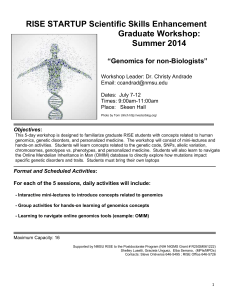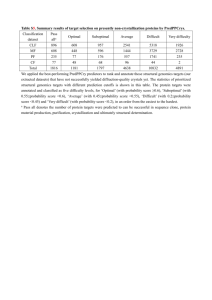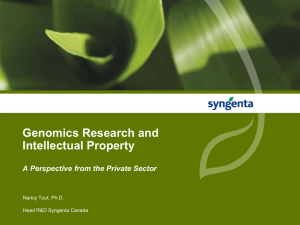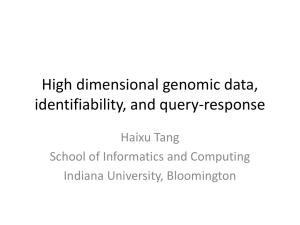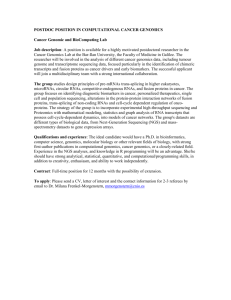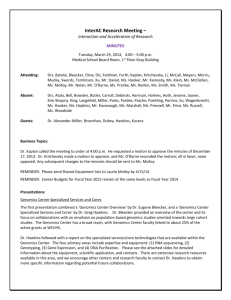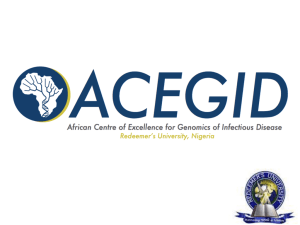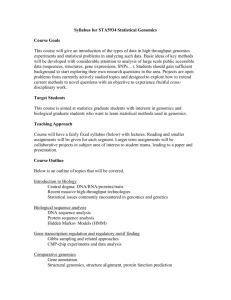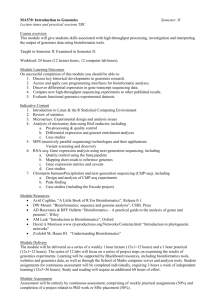Minutes - Wake Forest Baptist Medical Center
advertisement
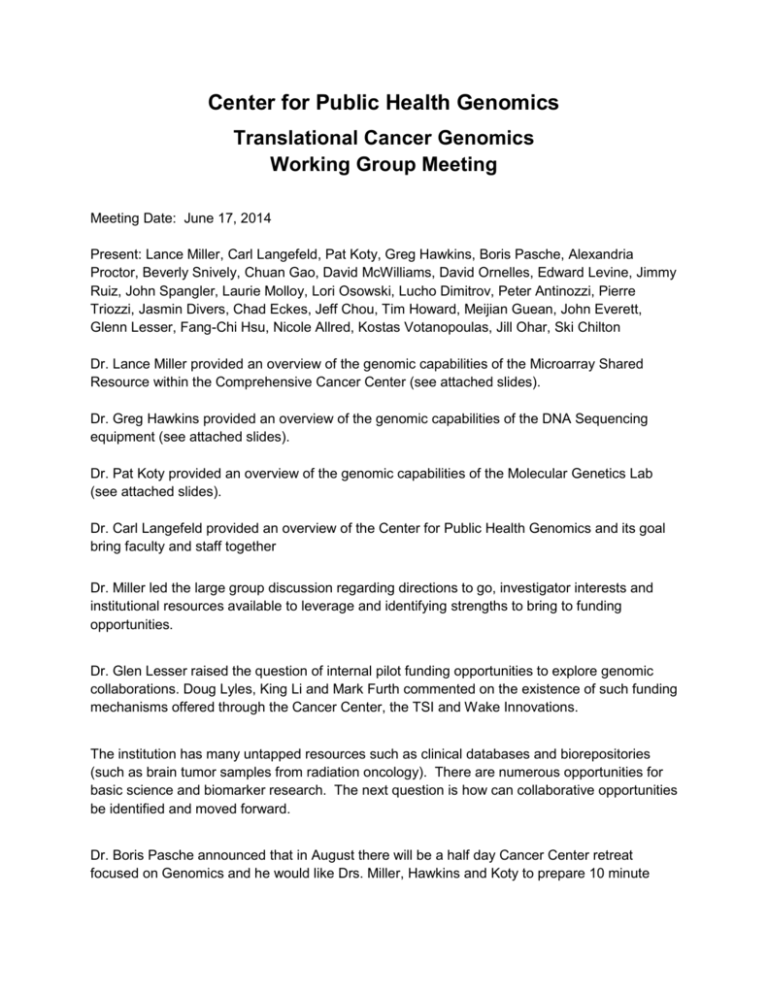
Center for Public Health Genomics Translational Cancer Genomics Working Group Meeting Meeting Date: June 17, 2014 Present: Lance Miller, Carl Langefeld, Pat Koty, Greg Hawkins, Boris Pasche, Alexandria Proctor, Beverly Snively, Chuan Gao, David McWilliams, David Ornelles, Edward Levine, Jimmy Ruiz, John Spangler, Laurie Molloy, Lori Osowski, Lucho Dimitrov, Peter Antinozzi, Pierre Triozzi, Jasmin Divers, Chad Eckes, Jeff Chou, Tim Howard, Meijian Guean, John Everett, Glenn Lesser, Fang-Chi Hsu, Nicole Allred, Kostas Votanopoulas, Jill Ohar, Ski Chilton Dr. Lance Miller provided an overview of the genomic capabilities of the Microarray Shared Resource within the Comprehensive Cancer Center (see attached slides). Dr. Greg Hawkins provided an overview of the genomic capabilities of the DNA Sequencing equipment (see attached slides). Dr. Pat Koty provided an overview of the genomic capabilities of the Molecular Genetics Lab (see attached slides). Dr. Carl Langefeld provided an overview of the Center for Public Health Genomics and its goal bring faculty and staff together Dr. Miller led the large group discussion regarding directions to go, investigator interests and institutional resources available to leverage and identifying strengths to bring to funding opportunities. Dr. Glen Lesser raised the question of internal pilot funding opportunities to explore genomic collaborations. Doug Lyles, King Li and Mark Furth commented on the existence of such funding mechanisms offered through the Cancer Center, the TSI and Wake Innovations. The institution has many untapped resources such as clinical databases and biorepositories (such as brain tumor samples from radiation oncology). There are numerous opportunities for basic science and biomarker research. The next question is how can collaborative opportunities be identified and moved forward. Dr. Boris Pasche announced that in August there will be a half day Cancer Center retreat focused on Genomics and he would like Drs. Miller, Hawkins and Koty to prepare 10 minute presentations. Dr. Pasche would like to discuss how the Cancer Center can harness institutional resources and how can we collaborate. In the area of Cancer Genomics, a typical GWAS is no longer prominent. The field is moving toward fine mapping and the identification of functional SNPs. Dr. Pasche sees great opportunities for genomics research in the evaluation of medications, selecting cancer therapies and understanding the differences in ethnicities. He stressed the importance of harnessing our own researchers and resources. It is also important to make use of existing projects in other diseases such as COPD and Diabetes to study how they relate to cancer (using datasets and infrastructure of existing projects and giving cancer a second look). There are also interesting opportunities for pathway analysis in mouse cancer models. How can we link existing tissue biobanks with deindentified phenotype? It was pointed out that this already exists at our institution. Cross Appointments need to be identified and sought as collaborations develop. This is important for grant applications to have these designations. The first Translational Cancer Genomics working group meeting went very well and generated a lot of interest in collaboration and education to the resources available at our institution. Over the next few months, Dr. Miller will be communicating via email working to created smaller more collaborative focus groups to harness investigators, common interests and resources toward the creation of new research ideas and funding opportunities. The next Translational Cancer Genomics working group meeting will be in approximately 6 months.
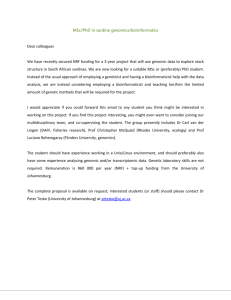
![9_Komlenac - start [kondor.etf.rs]](http://s2.studylib.net/store/data/005352037_1-bdc91b0717c49a75493200bca431c59c-300x300.png)
